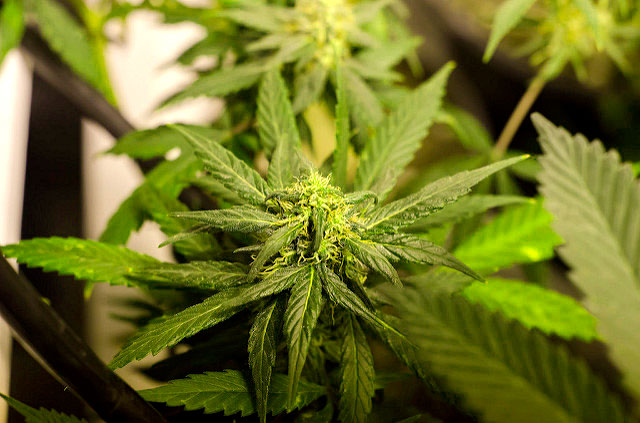
One in four Americans may soon be living in places where marijuana is fully legal, thanks to state ballot initiatives this November.
California, Massachusetts, Arizona, Maine and Nevada will all be asking voters next month whether to end prohibition on the recreational consumption of cannabis.
Polling in all states but California indicate the outcome of the referenda will be close, according to an article published Thursday by The Hill. Voters in the Golden State — the first jurisdiction in the country to legalize medicinal marijuana — appear to back legalization by more than twenty points.
According to studies cited in a 2014 Congressional Research Service paper, the pretax price of cannabis is expected to drop in California by between 50 and 80 percent, in the event of full legalization.
“This price reduction would suggest a price of $100-$150 per ounce on average,” CRS said, while noting excise taxes would likely see retail prices much higher than that.
Medical sales last year in California at $2.7 billion accounted for nearly half of all legal marijuana transactions in the country, as The New York Times noted in April.
Close polling, however, doesn’t necessarily bode well for legalization advocates in Massachusetts, Arizona, Maine or Nevada.
“If the pro-legalization side is not at 55 percent at this point, it will likely lose,” said Sean Noble, a Republican strategist and prohibition advocate in Arizona. “We know that polling on legalization generally over performs actual results.”
In the past few years, voters have approved of recreational marijuana in Colorado, Washington, the District of Columbia, Alaska, and Oregon.
Despite the fact that medicinal cannabis is legal in 25 states and Washington, DC, the Drug Enforcement Administration earlier this year refused to remove it as a Schedule I controlled substance.
The decision means the federal government still officially considers cannabis to have no medicinal applications: as dangerous as heroin and cocaine, and more dangerous than Schedule II opioids that cause tens of thousands of annual fatal overdoses.
Drug scheduling also became the subject of controversy in late August, when the DEA fully banned kratom, an herbal opioid substitute.
The move, however, has not yet taken effect, though it was supposed to on Sept. 30. DEA officials are reportedly delaying enforcement and rethinking the move, after coming under significant public pressure. Dozens of lawmakers in the House, both Democrats and Republicans, asked the White House last week to stop the kratom ban on procedural grounds, noting that the DEA had not held a public comment period.
Our most important fundraising appeal of the year
December is the most critical time of year for Truthout, because our nonprofit news is funded almost entirely by individual donations from readers like you. So before you navigate away, we ask that you take just a second to support Truthout with a tax-deductible donation.
This year is a little different. We are up against a far-reaching, wide-scale attack on press freedom coming from the Trump administration. 2025 was a year of frightening censorship, news industry corporate consolidation, and worsening financial conditions for progressive nonprofits across the board.
We can only resist Trump’s agenda by cultivating a strong base of support. The right-wing mediasphere is funded comfortably by billionaire owners and venture capitalist philanthropists. At Truthout, we have you.
We’ve set an ambitious target for our year-end campaign — a goal of $119,000 to keep up our fight against authoritarianism in 2026. Please take a meaningful action in this fight: make a one-time or monthly donation to Truthout before December 31. If you have the means, please dig deep.